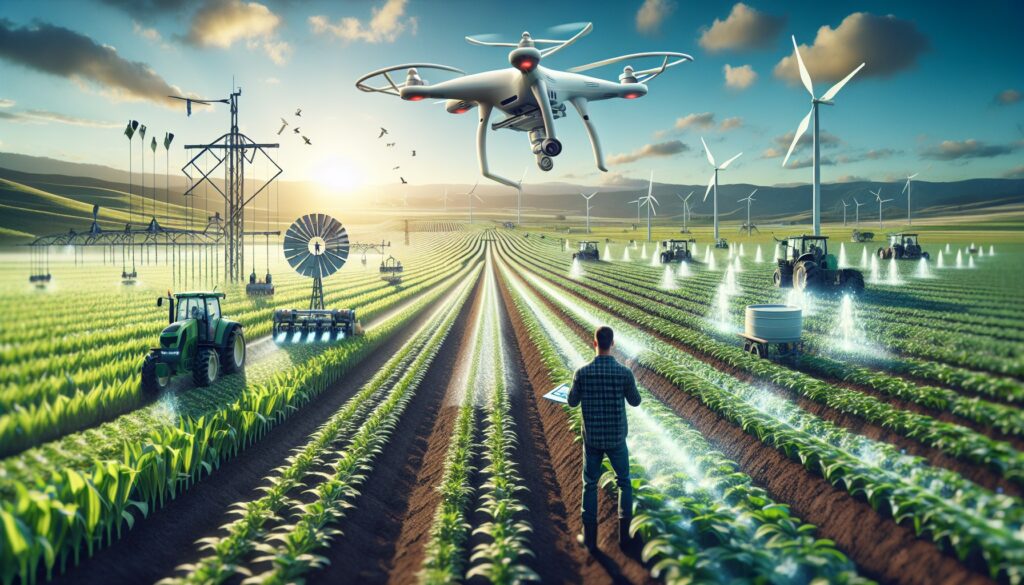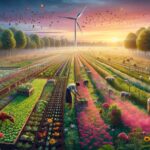Smart Farming: The Future of Agriculture
As the world’s population grows, the demand for food production rises steadily. To meet this increasing demand while maintaining sustainability, agriculture has undergone a technological transformation. Smart farming, also known as precision agriculture, is at the forefront of this shift. It integrates advanced technologies such as the Internet of Things (IoT), artificial intelligence (AI), and big data to enhance farming efficiency and productivity.

What is Smart Farming?
Smart farming refers to the use of modern technologies to monitor, automate, and optimize agricultural processes. It allows farmers to make data-driven decisions, improving crop yields while minimizing resource use. From irrigation systems that adjust based on soil moisture to drones that survey crops, smart farming utilizes real-time data to enhance every step of the farming process.
Key Technologies in Smart Farming
- IoT Devices
Internet of Things devices play a crucial role in smart farming by collecting real-time data on soil conditions, weather, and crop health. Sensors placed in fields can measure moisture, temperature, and nutrient levels, providing farmers with accurate insights on when and how to water or fertilize their crops. - Drones and Satellites
Drones and satellite imaging are used to monitor large areas of farmland. With high-resolution imagery, farmers can identify issues such as pest infestations or water stress early on. These technologies allow for timely interventions, leading to healthier crops and better yields. - AI and Machine Learning
Artificial intelligence helps in analyzing the large volumes of data collected by IoT devices and drones. Through machine learning, AI systems can identify patterns and offer predictions about crop performance, weather changes, and pest outbreaks. This helps farmers make informed decisions, reducing risks and improving efficiency. - Automated Machinery
Smart tractors, robotic harvesters, and automated irrigation systems make farming operations more efficient and less labor-intensive. These machines can be programmed to carry out tasks with precision, ensuring optimal use of resources like water and fertilizers.
Benefits of Smart Farming
- Increased Efficiency: By automating many tasks and using real-time data, smart farming reduces manual labor and increases productivity. Farmers can monitor their crops and livestock from anywhere, making adjustments as needed.
- Sustainability: Smart farming techniques help reduce water usage, chemical runoff, and waste, promoting more sustainable agricultural practices. This is especially important as concerns about climate change and environmental degradation grow.
- Cost Reduction: Through better resource management, smart farming can help lower the costs associated with water, fertilizers, and labor. Early detection of problems also reduces the likelihood of crop failures, saving farmers money.
- Better Yields: Precision agriculture allows farmers to optimize conditions for their crops, leading to higher yields. This is essential in meeting the global food demand while using fewer resources.
The Future of Smart Farming
The future of agriculture looks increasingly reliant on technology. As more farmers adopt smart farming methods, the agricultural industry will continue to evolve. The development of AI-powered tools, enhanced data analytics, and even autonomous farming equipment will further revolutionize how we produce food.
Smart farming offers a promising solution to the challenges facing modern agriculture. By blending tradition with technology, it paves the way for a future where farming is more efficient, sustainable, and productive.
Incorporating these innovations helps not only to increase food production but also to address the pressing issue of environmental conservation, ensuring that future generations can continue to rely on the land to feed a growing population.



